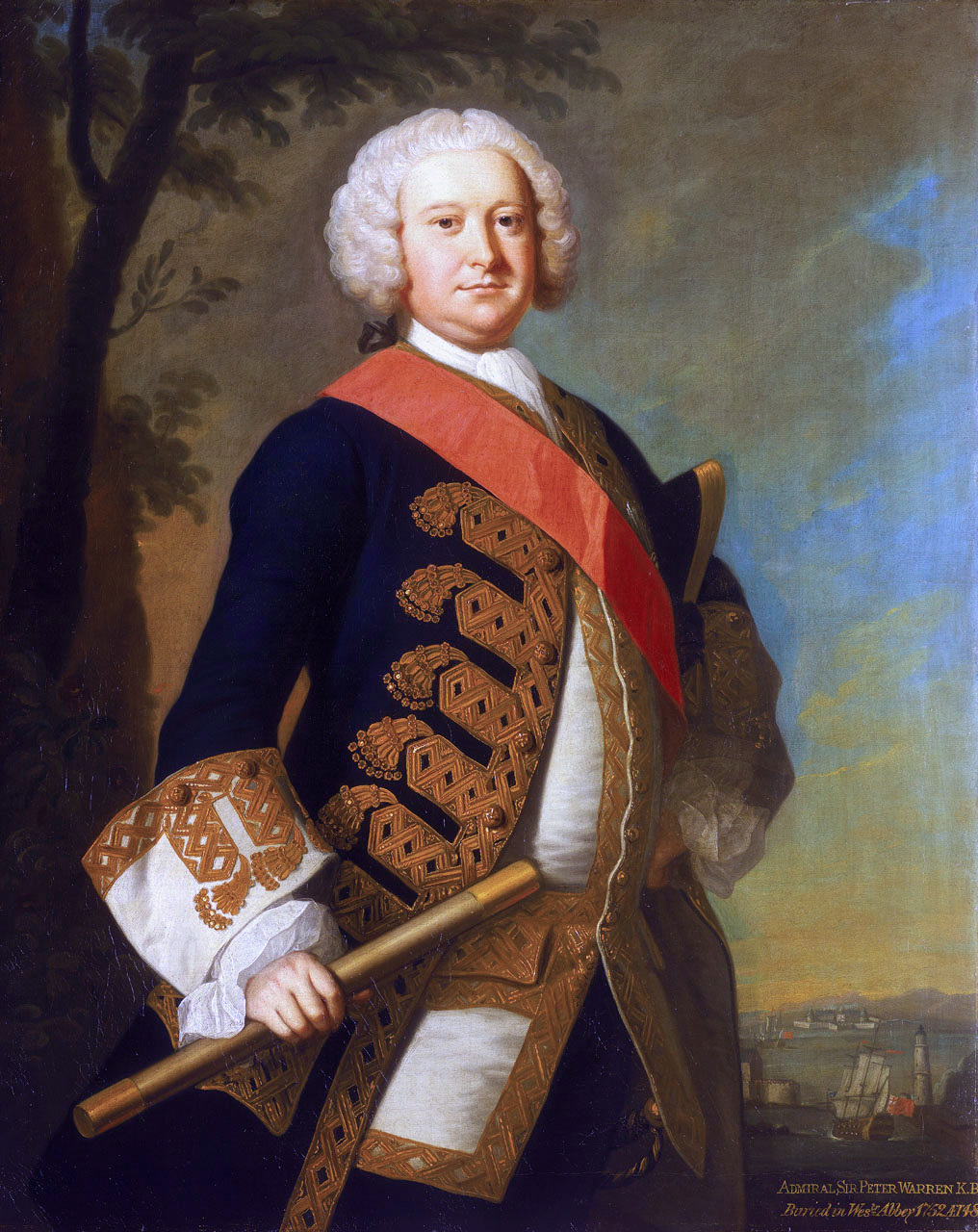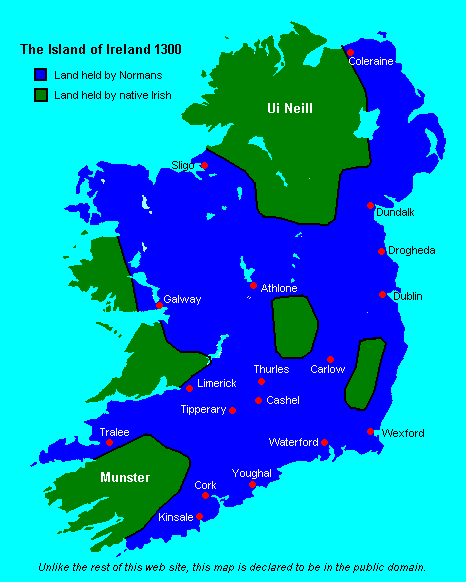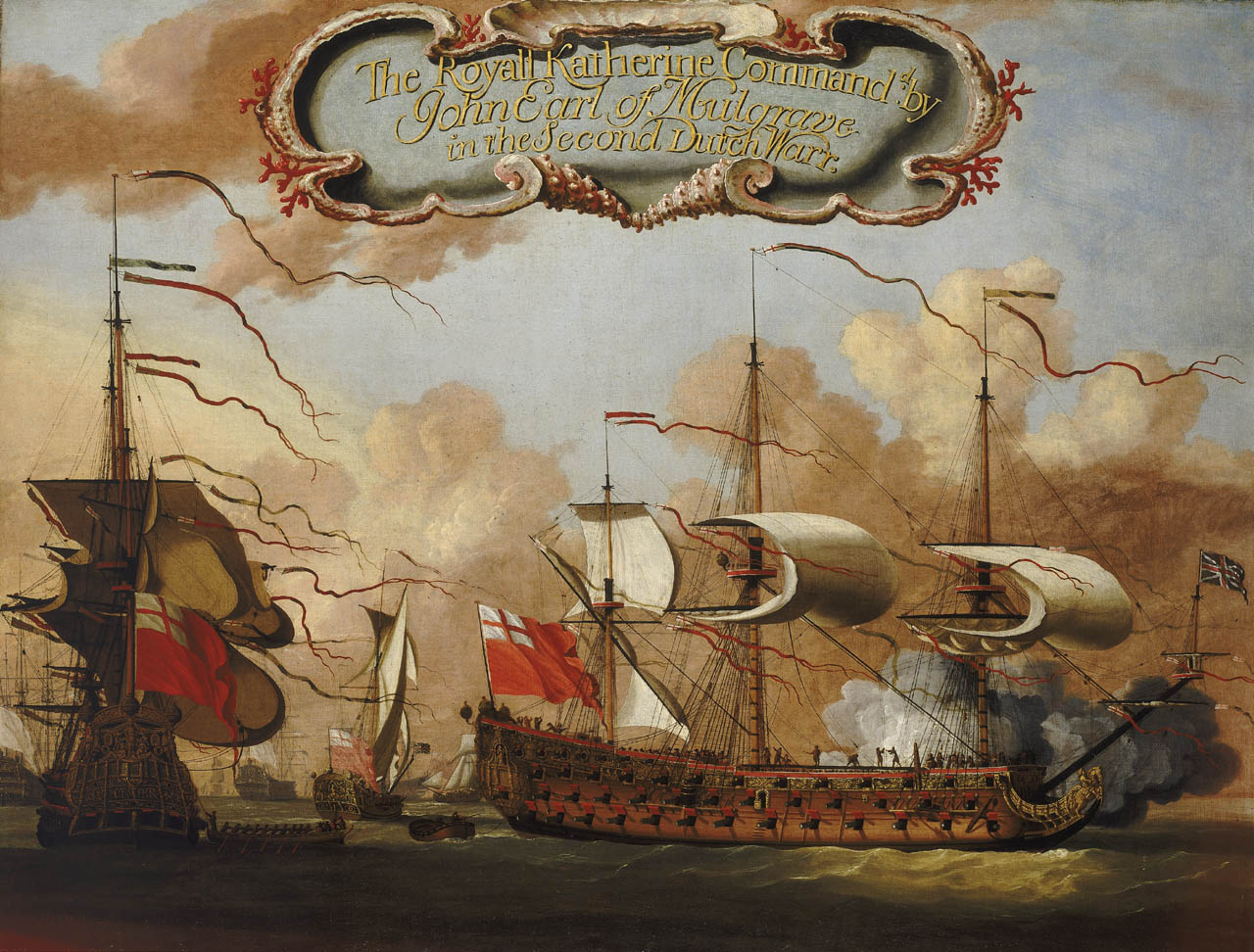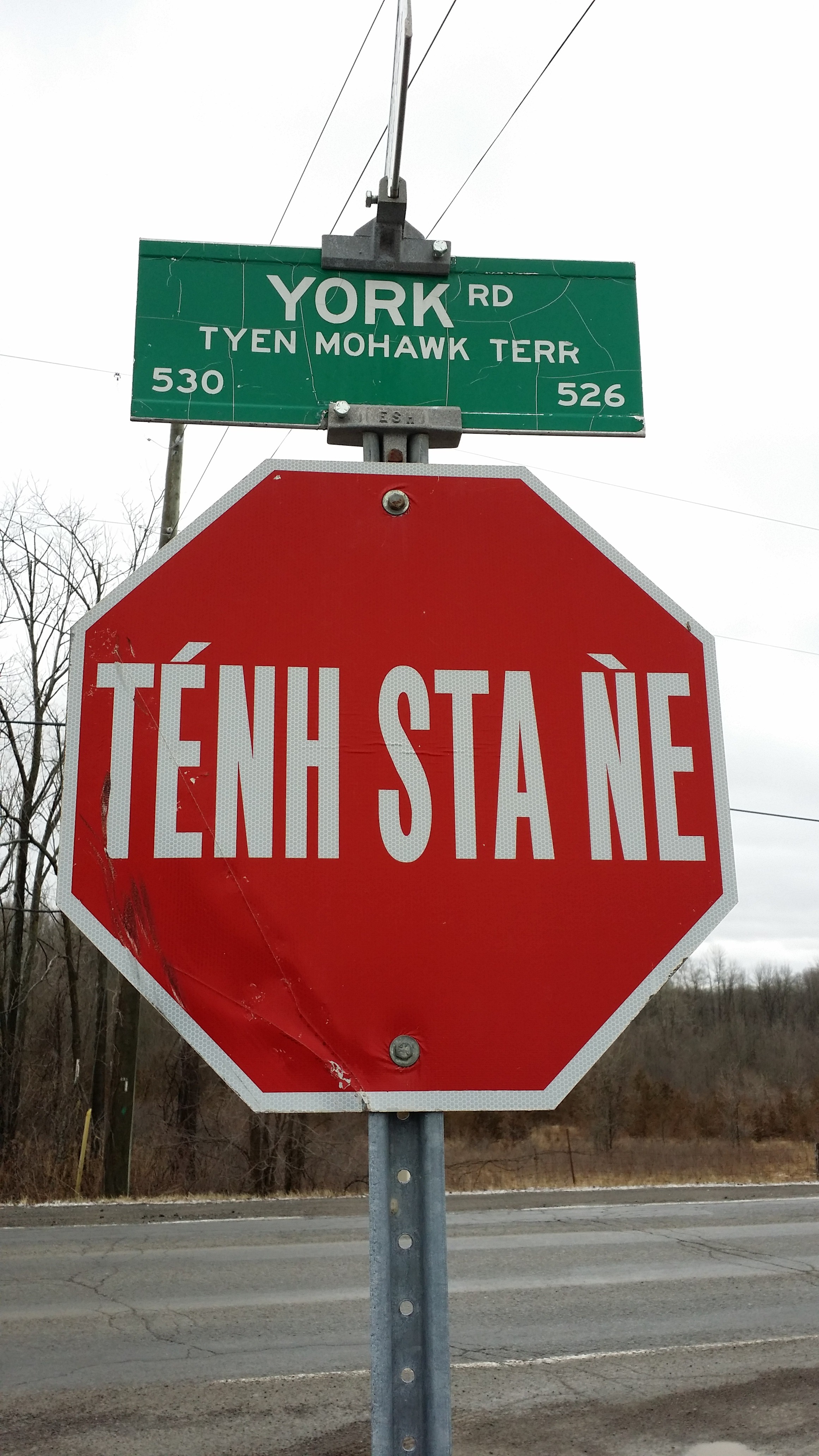|
Sir William Johnson, 1st Baronet
Sir William Johnson, 1st Baronet of New York ( – 11 July 1774), was a British Army officer and colonial administrator from Ireland. As a young man, Johnson moved to the Province of New York to manage an estate purchased by his uncle, Royal Navy officer Peter Warren, which was located in territory of the Mohawk, one of the Six Nations of the Iroquois League, or ''Haudenosaunee''. Johnson learned the Mohawk language and Iroquois customs, and was appointed the British agent to the Iroquois. Because of his success, he was appointed in 1756 as British Superintendent of Indian Affairs for all the northern colonies. Throughout his career as a British official among the Iroquois, Johnson combined personal business with official diplomacy, acquiring tens of thousands of acres of Native land and becoming very wealthy. Johnson commanded Iroquois and colonial militia forces against the French and their allies during the French and Indian War, the North American theater of the Seven Year ... [...More Info...] [...Related Items...] OR: [Wikipedia] [Google] [Baidu] |
Baronet
A baronet ( or ; abbreviated Bart or Bt) or the female equivalent, a baronetess (, , or ; abbreviation Btss), is the holder of a baronetcy, a hereditary title awarded by the British Crown. The title of baronet is mentioned as early as the 14th century, however in its current usage was created by James VI and I, James I of England in 1611 as a means of raising funds for the crown. A baronetcy is the only British Hereditary title, hereditary honour that is not a peerages in the United Kingdom, peerage, with the exception of the Anglo-Irish Knight of Glin, Black Knights, White Knight (Fitzgibbon family), White Knights, and Knight of Kerry, Green Knights (of whom only the Green Knights are extant). A baronet is addressed as "Sir" (just as is a knight) or "Dame" in the case of a baronetess, but ranks above all knighthoods and damehoods in the Orders of precedence in the United Kingdom, order of precedence, except for the Order of the Garter, the Order of the Thistle, and the dormant ... [...More Info...] [...Related Items...] OR: [Wikipedia] [Google] [Baidu] |
Royal Navy
The Royal Navy (RN) is the United Kingdom's naval warfare force. Although warships were used by English and Scottish kings from the early medieval period, the first major maritime engagements were fought in the Hundred Years' War against France. The modern Royal Navy traces its origins to the early 16th century; the oldest of the UK's armed services, it is consequently known as the Senior Service. From the middle decades of the 17th century, and through the 18th century, the Royal Navy vied with the Dutch Navy and later with the French Navy for maritime supremacy. From the mid 18th century, it was the world's most powerful navy until the Second World War. The Royal Navy played a key part in establishing and defending the British Empire, and four Imperial fortress colonies and a string of imperial bases and coaling stations secured the Royal Navy's ability to assert naval superiority globally. Owing to this historical prominence, it is common, even among non-Britons, to ref ... [...More Info...] [...Related Items...] OR: [Wikipedia] [Google] [Baidu] |
Gentry
Gentry (from Old French ''genterie'', from ''gentil'', "high-born, noble") are "well-born, genteel and well-bred people" of high social class, especially in the past. Word similar to gentle [simple and decent] families ''Gentry'', in its widest connotation, refers to people of good social position connected to landed estates (see manorialism), upper levels of the clergy, and "gentle" families of long descent who in some cases never obtained the official right to bear a coat of arms. The gentry largely consisted of landowners who could live entirely from rental income, or at least had a Estate (land), country estate; some were gentleman farmers. In the United Kingdom, the term ''gentry'' refers to the landed gentry: the majority of the land-owning social class who typically had a coat of arms, but did not have a Peerages in the United Kingdom, peerage. The adjective "Patrician (post-Roman Europe), patrician" ("of or like a person of high social rank") describes in comparison other ... [...More Info...] [...Related Items...] OR: [Wikipedia] [Google] [Baidu] |
Old English (Ireland)
From the 12th century onwards, a group of Normans Norman invasion of Ireland, invaded and settled in Gaelic Ireland. These settlers later became known as Norman Irish or Hiberno-Normans. They originated mainly among Cambro-Normans, Cambro-Norman families in Wales and Anglo-Normans from England, who were loyal to the Kingdom of England, and the English state supported their claims to territory in the various realms then comprising Ireland. During the High Middle Ages and Late Middle Ages the Hiberno-Normans constituted a feudal aristocracy and merchant oligarchy, known as the Lordship of Ireland. In Ireland, the Normans were also closely associated with the Gregorian Reform of the Catholic Church in Ireland. Over time the descendants of the 12th-century Norman settlers spread throughout Ireland and around the world, as part of the Irish diaspora; they ceased, in most cases, to identify as Norman, Cambro-Norman or Anglo-Norman. The dominance of the Norman Irish declined during th ... [...More Info...] [...Related Items...] OR: [Wikipedia] [Google] [Baidu] |
Matthew Aylmer, 1st Baron Aylmer
Admiral of the Fleet Matthew Aylmer, 1st Baron Aylmer (ca. 1650 – 18 August 1720), of Covent Garden, Westminster, and Westcliffe, near Dover, was an Anglo-Irish Royal Navy officer and Whig politician who sat in the English and British House of Commons between 1695 and 1720. Aylmer was one of the captains who sent a letter to Prince William of Orange, who had just landed at Torbay, assuring the Prince of the captains' support; the Prince's response ultimately led to the Royal Navy switching allegiance to the Prince and the Glorious Revolution of November 1688. Aylmer saw action at the Battle of Bantry Bay in May 1689, at the Battle of Beachy Head in July 1690 and again at the Battle of Barfleur in May 1692 during the Nine Years' War. Aylmer became Commander-in-Chief of the Navy on 12 November 1709. However, when Aylmer met a French squadron and convoy, he was only able to capture one merchantman and the 56-gun ''Superbe'': the new Harley Ministry used this failure as an ex ... [...More Info...] [...Related Items...] OR: [Wikipedia] [Google] [Baidu] |
Admiral Sir Peter Warren
Admiral is one of the highest ranks in some navies. In the Commonwealth nations and the United States, a "full" admiral is equivalent to a "full" general in the army or the air force, and is above vice admiral and below admiral of the fleet, or fleet admiral. Etymology The word in Middle English comes from Anglo-French , "commander", from Medieval Latin , . These evolved from the Arabic () – (), “king, prince, chief, leader, nobleman, lord, a governor, commander, or person who rules over a number of people,” and (), the Arabic article answering to “the.” In Arabic, admiral is also represented as (), where () means the sea. The 1818 edition of Samuel Johnson's '' A Dictionary of the English Language'', edited and revised by the Rev. Henry John Todd, states that the term “has been traced to the Arab. emir or amir, lord or commander, and the Gr. , the sea, q. d. ''prince of the sea''. The word is written both with and without the d, in other languages, as w ... [...More Info...] [...Related Items...] OR: [Wikipedia] [Google] [Baidu] |
John Stuart (loyalist)
John Stuart (25 September 1718 – 21 March 1779) was a Scottish-born official of the British Empire in the colony of South Carolina, North America. He was the superintendent for the southern district of the British Indian Department from 1761 to 1779; his northern counterpart was Sir William Johnson, based in the colony of New York. Early life Born in Inverness, Scotland, in 1718, by 1748 Stuart had emigrated to the British colony of South Carolina. There he worked as a merchant and became prominent in local affairs. In 1760 he served as a militia captain in the Anglo-Cherokee War (1759–1761). Stuart was captured by the Cherokee, but he was ransomed by Chief Attakullakulla and returned to South Carolina. Appointment as Superintendent in the Indian Department Captain Stuart's familiarity with Native Americans and the frontier earned his appointment in 1761 as royal superintendent in the Indian Department. His role was to help Great Britain and the colonies bring order to their r ... [...More Info...] [...Related Items...] OR: [Wikipedia] [Google] [Baidu] |
Siege Of Fort Niagara
The Battle of Fort Niagara was a siege late in the French and Indian War, the North American theatre of the Seven Years' War. The British siege of Fort Niagara in July 1759 was part of a campaign to remove French control of the Great Lakes and Ohio Valley regions, making possible a western invasion of the French province of Canada in conjunction with General James Wolfe's invasion to the east. Background British General Jeffery Amherst made plans for the 1759 military campaigns of the Seven Years' War that included an expedition to capture Fort Niagara, a major French military and supply point between the French province of Canada and their forts in the Ohio Valley. Amherst chose Brigadier General John Prideaux to lead the expedition, which also included Sir William Johnson, the British Indian agent who led the expedition's Iroquois forces. Fort Niagara had been largely constructed under the direction of Captain Pierre Pouchot of the French Army. In early 1759, General Loui ... [...More Info...] [...Related Items...] OR: [Wikipedia] [Google] [Baidu] |
Johnson Baronets
Three Baronetcies have been created for persons with the surname Johnson: one of New York in 1755 in the Baronetage of Great Britain, and then one of Bath (1818) and one of Dublin (1909), both in the Baronetage of the United Kingdom. As of 2010 the Johnson baronetcy of Bath is dormant, and that of Dublin is extinct. Johnson baronetcy of New York (1755) The Johnson Baronetcy, of New York in North America, was created in the Baronetage of Great Britain on 27 November 1755 for the soldier William Johnson. A descendant of the O'Neill dynasty, his family name was originally MacShane (Irish: ''Mac Seáin''), of which Johnson is a translation. The baronetcy was awarded for his victories at Crown Point and the Battle of Lake George earlier that year. Johnson baronets of New York *Sir William Johnson, 1st Baronet (1715–1774). His nephew, Guy Johnson, was a distinguished soldier. *Sir John Johnson, 2nd Baronet (1742–1830) was a loyalist leader during the American Revolution. His ... [...More Info...] [...Related Items...] OR: [Wikipedia] [Google] [Baidu] |
Seven Years' War
The Seven Years' War (1756–1763) was a global conflict that involved most of the European Great Powers, and was fought primarily in Europe, the Americas, and Asia-Pacific. Other concurrent conflicts include the French and Indian War (1754–1763), the Carnatic Wars and the Anglo-Spanish War (1762–1763). The opposing alliances were led by Great Britain and France respectively, both seeking to establish global pre-eminence at the expense of the other. Along with Spain, France fought Britain both in Europe and overseas with land-based armies and naval forces, while Britain's ally Prussia sought territorial expansion in Europe and consolidation of its power. Long-standing colonial rivalries pitting Britain against France and Spain in North America and the West Indies were fought on a grand scale with consequential results. Prussia sought greater influence in the German states, while Austria wanted to regain Silesia, captured by Prussia in the previous war, and to contain Pruss ... [...More Info...] [...Related Items...] OR: [Wikipedia] [Google] [Baidu] |
Mohawk Language
Mohawk (; ''Kanienʼkéha'', " anguageof the Flint Place") is an Iroquoian language currently spoken by around 3,500 people of the Mohawk nation, located primarily in current or former Haudenosaunee territories, predominately Canada (southern Ontario and Quebec), and to a lesser extent in the United States (western and northern New York). The word "Mohawk" is an exonym. In the Mohawk language, the people say that they are from ''Kanien:ke'' ('Mohawk Country' or "Flint Stone Place") and that they are ''Kanienʼkehá꞉ka'' "People of the Flint Stone Place" or "People of the Flint Nation". The Mohawks were extremely wealthy traders, as other nations in their confederacy needed their flint for tool-making. Their Algonquian-speaking neighbors (and competitors), the People of ''Muh-heck Heek Ing'' ("food-area place"), a people called by the Dutch "Mohicans" or "Mahicans", called the People of Ka-nee-en Ka "Maw Unk Lin" or ''Bear People''. The Dutch heard and wrote that as "Mohawks" ... [...More Info...] [...Related Items...] OR: [Wikipedia] [Google] [Baidu] |
Haudenosaunee
The Iroquois ( or ), officially the Haudenosaunee ( meaning "people of the longhouse"), are an Iroquoian Peoples, Iroquoian-speaking Confederation#Indigenous confederations in North America, confederacy of First Nations in Canada, First Nations peoples in northeast North America/Turtle Island (Native American folklore), Turtle Island. They were known during the Colonial history of the United States, colonial years to the French as the Iroquois League, and later as the Iroquois Confederacy. The English people, English called them the Five Nations, comprising the Mohawk people, Mohawk, Oneida people, Oneida, Onondaga people, Onondaga, Cayuga people, Cayuga, and Seneca people, Seneca (listed geographically from east to west). After 1722, the Iroquoian-speaking Tuscarora people from the southeast were accepted into the confederacy, which became known as the Six Nations. The Confederacy came about as a result of the Great Law of Peace, said to have been composed by The Great Peacem ... [...More Info...] [...Related Items...] OR: [Wikipedia] [Google] [Baidu] |







